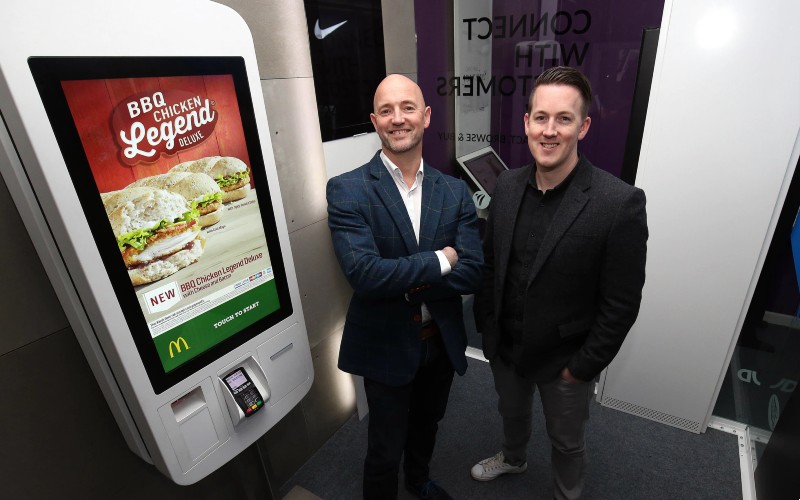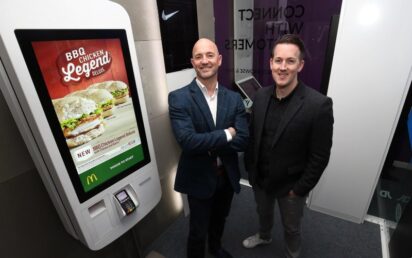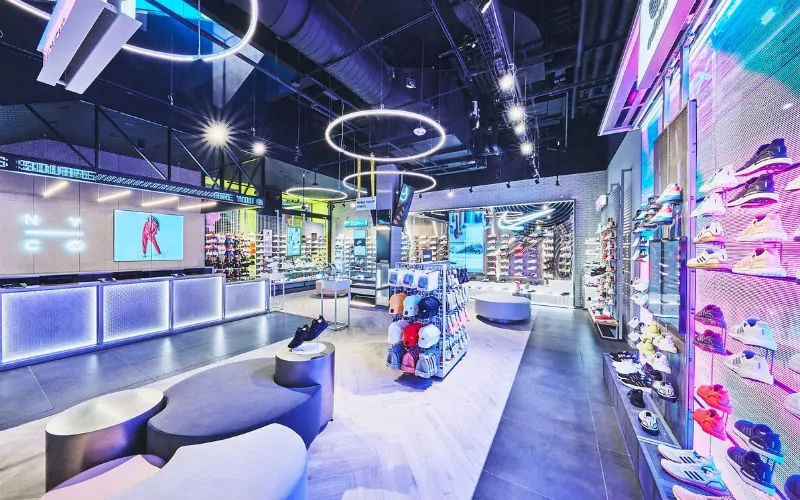Dean Ward will never forget the meeting with McDonald’s that added rocket fuel to Evoke Creative’s growth story.
The Liverpool tech company first met the fast food giant in 2013 at a trade show and but it didn’t call for two years.
By the time the phone rang, the firm – which then employed 15 people – had forged a reputation for manufacturing self-service kiosks. Could they service a multi-million-pound order from McDonald’s that would eventually total 5,000 kiosks?
“It was a game-changer for us,” recalls Ward in an interview with TechBlast. “We saw it as a massive opportunity. We were a small business on the Wirral and we thought ‘this could be it for us’.
“We put absolutely everything into making that product the best we could. We knew we would probably only get one of these opportunities in our lifetime and we grabbed it.
“Between meeting them and going back to see them with a physical product for them to try was two weeks. Being a small agile business meant that we could do that really well.
“We were up against these big corporates but we could move quickly. We walked away from that meeting with a contract to manufacture 500 units. It grew from there.”
Evoke quickly doubled its workforce to 32 inside six months but that created its own growing pains.
“You think about where you’re going to put the new members of staff, and have you got the right IT?” says Ward. “To double in size in such a short space of time brings with it operational challenges. However, we did it.”
Today Evoke Creative employs 120 people, has a turnover of £21m and counts JD Sports among its customers. It has its eyes firmly set on cracking America.
Evoke Creative’s story officially began in 2006 when it changed its name from Raffo Design.
Ward first joined the design consultancy in 2004, which was set up by Neil Clark, Iain Quayle and Graham Boyd.
Be prepared to fail
“You have to try a few things and be prepared to fail,” says Ward, who was asked to create self-service kiosks for libraries by Stockport-based Intellident, which is now part of Bibliotheca Group.
“Intellident came to us with a new product. It was a self-checkout product that they’d prototyped themselves but they wanted someone to take it and make a product that they could take to the market.
“We took it through its course. We saw the opportunity to manufacture the product ourselves which was a departure from what we’d done before.
“Myself and Neil set up a company called Evoke Interactive, took some space at Easyspace in Ellesmere Port while Iain and Graham ran the original design company.
“In the first year we did £1.2m turnover whereas the design company did £200,000 so everything was consolidated into Evoke Interactive and we manufactured everything ourselves.
“The first five years were busy and challenging. Intellident went on a huge growth spurt. The whole industry around self-checkouts was new and it exploded.
“A lot of it comes down to timing. The iPhone came out in 2007 and by 2008 companies wanted to make efficiencies and self-service was born.
“The first five years were pretty hand-to-mouth. We went through four different buildings as we were growing the business.
“We were trying to sort finance out as we were growing the business at 30% a year. That created a financial challenge in terms of credit and terms. It was exciting.”
One of the biggest challenge for Evoke was that it only had one client, Intellident, in the early days.
“That created a lot of pressure to be proactive and not to rest on our laurels,” says Ward.
Evoke found itself at the centre of a perfect storm as self-service began to take off – although there was some early scepticism to overcome.
“A lot of people look at kiosks and think ‘you’re getting rid of my job’,” he says. “Fundamentally in this day and age businesses need to survive because there’s increased competition, especially from online.
“Our technology enables companies to redeploy staff and skills. The machines do the menial labour while the staff do more skill-based work.
“At McDonald’s, taking the order is the simple bit. Speaking to the customers, cooking the food, clearing the tables etc are really important to the overall customer experience while taking someone’s order is better done by a machine.
“What we do really well is land and expand. We don’t have hundreds of different clients but the clients we work with today we wrap ourselves around and become a value-added partner.”
Evoke now makes more than 30 products for McDonald’s.
Taking investment
In 2018 the company received £6m from BGF in exchange for 20% equity and two of the original founders – Quayle and Boyd – sold their remaining equity.
Commenting on the reasons for the investment, Ward says: “The reason for doing the deal was planning for the next stage of growth.
“There was a huge opportunity in the sector and Neil and I got it to the point where we were honest enough to say if we were going to take it further we needed more help and advice. It was more about finding a partner for growth to take us to the next level.
“The US expansion was definitely something we wanted to do. It was also about getting a non-executive in to help us drive that growth.”
Mark Mills, founder of Cardpoint, which he grew to become the world’s largest independent cash machine company before exiting in 2007, joined in 2018 as chairman.
“We chose BGF because we wanted a hands-off partner,” says Ward. “We got a lot of offers and spoke to about 10 private equity houses. BGF were a lot more hands-off and let us run the organisation although they are always there for advice.”
The firm recently purchased Liverpool-based app design and development agency Apposing.
“We’ve been working with app companies, especially in the retail sector,” explains Ward. “It’s always been an ambition of ours to own that space. We do our own software development for certain sectors but we wanted to bring that expertise in-house.
“With COVID, the adoption of mobile phones has gone through the roof with people using their handsets. We wanted to control that complete customer journey. The start or the end of the journey is with the customer’s hand-held device.
“We didn’t have the skillset in-house to do that ourselves so we had a choice. Do we build an app team in the business? If we did that it would take years to get established and credibility.
“It made absolute sense to acquire Apposing because of the great work that they’d done. They’re a really good size, they’re local and I’ve known managing director Dave Brown for years.
“We could bring them into our organisation so the timing was perfect for us. We’ve got a really good customer base between us. There’s loads of crossover.”
US manufacturing base
The acquisition has been followed by signing a lease on 20,000 sq ft premises in South Carolina in the US.
“We ship thousands of our products to the States in containers but it’s not really sustainable,” says Ward.
“We’ve reached the point where we’re shipping so much to the States we’ve reached that critical mass where it makes complete sense to set up manufacturing there.”
Evoke has also identified transport as a sector ripe for its tech disruption. “For the last 12 months we’ve been developing some pretty disruptive products into the transport sector,” says Ward. “In light of what’s happening with the railways we’re looking at deploying next-generation ticket machines and much more than that.
“It’s about connecting the traveller with additional services. The business model for the products we’re putting in are all driven by advertising.
“We’re setting up a media company that will own the asset and put these kiosks in that provide ticketing but also things like parking when you arrive at your destination, tourist information and hotels.
“We’re trying to build a marketplace of all these different things into one multi functional product. It’s an exciting time.”
His tip for growth? “Keep flexible and have a growth mindset is key. You have to be able to adapt your business and don’t be blinkered.”


